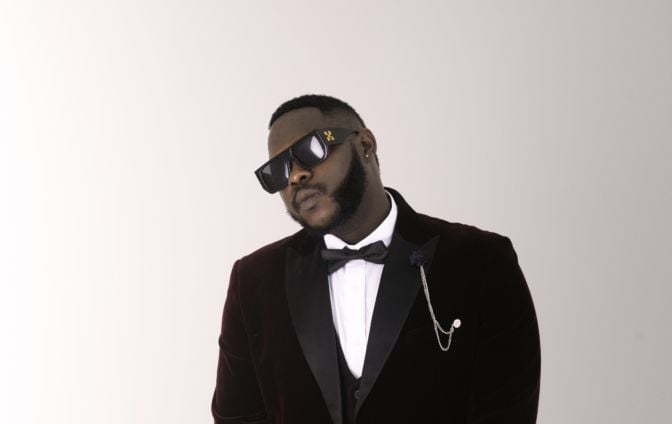Samuel Adu Frimpong, professionally known as Medikal, a prominent figure in the Ghanaian rap scene, has ignited a fresh wave of discussion and debate with his recent proclamations of supremacy. In a series of assertive social media posts, the “Omo Ada” hitmaker boldly declared himself the undisputed king of Ghanaian rap, claiming an unparalleled level of skill, influence, and financial success that sets him apart from his contemporaries. His pronouncements, delivered with characteristic confidence and swagger, have once again stirred the ongoing conversation about who truly reigns supreme in the Ghanaian rap landscape, a discussion marked by passionate opinions and divided loyalties.
Medikal’s declaration of dominance extended beyond mere lyrical prowess, encompassing a claim of unparalleled impact on the music industry. He boasted of his ability to ghostwrite for other rappers, while simultaneously outperforming them on the same track, a testament to his perceived lyrical dexterity and versatility. This assertion underscored his belief in his superior writing abilities and his capacity to craft compelling rhymes that resonate with audiences, regardless of the artist performing them. He further emphasized his influence by declaring himself the highest-paid rapper in Ghana, suggesting that his financial success is a direct reflection of his artistic merit and market demand.
The rapper’s confident pronouncements reflect a longstanding pattern of self-promotion, a trait that has characterized his career and contributed to both his popularity and controversy. Medikal has never been one to shy away from extolling his virtues, often using social media platforms to showcase his achievements and assert his dominance within the industry. While this self-assuredness has undoubtedly contributed to his brand building and fan engagement, it has also drawn criticism from some quarters who perceive it as arrogance. However, this latest series of pronouncements has taken on a particularly assertive tone, directly challenging the hierarchy within the Ghanaian rap scene and inviting both admiration and opposition.
Medikal’s claims, while undeniably bold, are not entirely without foundation. His consistent release of hit songs, collaborations with prominent artists, and visible presence in the media landscape all point to a significant level of success and influence. He has carved a distinct niche for himself within the Ghanaian music scene, characterized by catchy hooks, relatable lyrics, and a dynamic stage presence. His music has resonated with a wide audience, solidifying his position as a major player in the industry. His financial success, while difficult to independently verify, aligns with his prominent status and the demand for his performances and collaborations.
However, the declaration of being the “best rapper” is inherently subjective and open to interpretation. The criteria for judging artistic merit are diverse and vary depending on individual preferences and perspectives. While technical skill, lyrical complexity, and commercial success are all factors to consider, the “best” rapper ultimately depends on subjective evaluation. Medikal’s assertion, therefore, is less a definitive statement of fact and more a projection of his self-perception and a strategic move to further solidify his brand and engage his audience. It serves as a catalyst for discussion and debate, prompting fans and critics alike to revisit the ongoing conversation about the hierarchy within Ghanaian rap.
The Ghanaian rap scene, a vibrant and dynamic space, boasts a diverse array of talented artists, each with their unique style, lyrical approach, and fan base. Determining the “best” is a complex and often contentious exercise, with no universally agreed-upon criteria. Artists like Sarkodie, M.anifest, Strongman, and E.L, among others, have all contributed significantly to the evolution and growth of Ghanaian rap, earning critical acclaim and commercial success in their own right. Medikal’s claim, therefore, is a direct challenge to the established order, a bold attempt to position himself at the apex of this competitive landscape. It remains to be seen how his peers and the larger music community will respond to this audacious declaration, but it undoubtedly adds fuel to the ongoing debate and keeps the conversation about Ghanaian rap vibrant and engaging.


